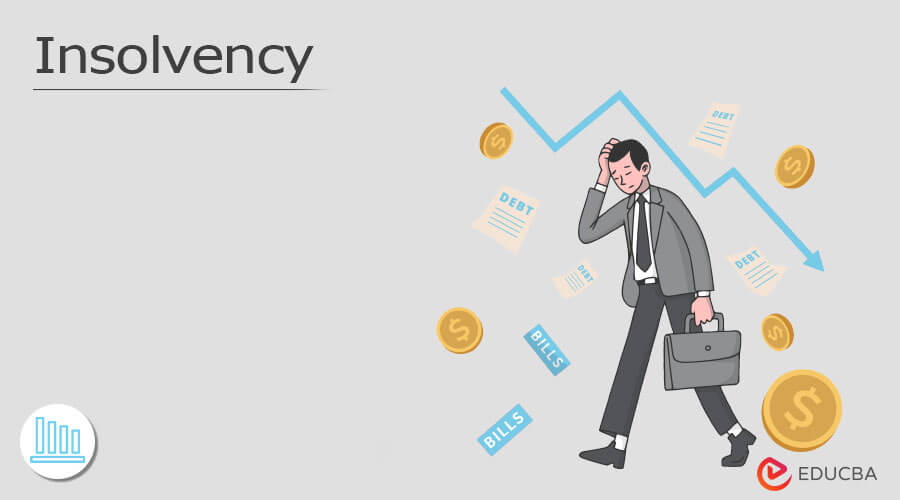Insolvency Practitioner Fundamentals Explained
Insolvency Practitioner Fundamentals Explained
Blog Article
Insolvency Practitioner for Dummies
Table of ContentsInsolvency Practitioner Things To Know Before You Buy6 Easy Facts About Insolvency Practitioner ShownThe Insolvency Practitioner DiariesWhat Does Insolvency Practitioner Do?The smart Trick of Insolvency Practitioner That Nobody is DiscussingInsolvency Practitioner Things To Know Before You BuyThe Ultimate Guide To Insolvency Practitioner
Bankruptcy is when responsibilities are above the value of the business, or when a debtor can not pay the financial obligations they owe. A firm can become insolvent because of a variety of scenarios that bring about poor capital. When confronted with bankruptcy, a business or individual can call creditors directly and restructure debts to pay them off.Insolvency can result in insolvency proceedings, in which legal action will be taken against the bankrupt individual or entity, and properties might be sold off to settle arrearages. Service proprietors might call lenders directly and restructure debts into even more workable installments. Lenders are typically amenable to this strategy due to the fact that they desire to be paid off and avoid losses, also if the settlement is on a delayed routine.
The smart Trick of Insolvency Practitioner That Nobody is Talking About
The owner develops a proposal outlining just how the financial debt may be reorganized making use of cost reductions or various other prepare for assistance. The proposition reveals lenders just how business might create adequate cash money circulation for profitable procedures while paying its financial debts. Usually, a forgiven financial obligation might be considered revenue by the Irs (IRS).

The 3-Minute Rule for Insolvency Practitioner
Business might wind up paying big amounts of money in damages and be overcome operations. When procedures stop, so does the company's revenue. Absence of income leads to accounts payable and lenders asking for cash owed to them. Some companies end up being financially troubled because their goods or services don't evolve to fit customers' transforming demands.
Costs exceed incomes and expenses stay overdue. Types of insolvency consist of cash-flow bankruptcy and balance-sheet insolvency. Cash-flow bankruptcy happens when a business has the possessions to cover their debts yet they remain in the wrong kind, such as realty rather than fluid funds. Balance-sheet insolvency, on the other hand, shows a lack of possessions in any type of form to cover financial obligations.
The internal revenue service states that a person is insolvent when the total obligations surpass complete possessions. A bankruptcy, on the various other hand, is an actual court order that portrays just how a bankrupt person or business will settle their creditors, or how they will offer their possessions in order to make the repayments.
What Does Insolvency Practitioner Mean?

Understanding the factors that can bring about bankruptcy, such as overspending, can help you stop bankruptcy and its consequences.
Insolvency Practitioner Fundamentals Explained
It is popular that directors and police officers of firms (and managers of limited liability companies) owe fiduciary tasks to their companies and their shareholders (or members). These fiduciary responsibilities are specified visit this website by state laws and, though there are variants from state to state, they typically include a task of commitment and a responsibility of treatment.
The task of care needs supervisors and police officers to exercise diligence, to make enlightened choices, and to act in excellent confidence so that their activities are in the very best interest of the firm. Past the extent of this discussion, some states allow these tasks to be limited either by so noting in the organizational files or conforming with various other needs.
Fascination About Insolvency Practitioner
A lot of states define insolvency in 2 ways( 1) when a firm's liabilities come to be higher than the sum of its assets or (2) when the company comes to be not able to pay its financial obligations as they become dueand embrace both interpretations (Insolvency Practitioner). The change in obligations happens due to the fact that when a company is financially troubled, there is no value in the business beyond that owed to the firm's lenders to ensure that the equity holders no much longer have an economic risk in the business
Take care about providing investors preferential therapy at the expense of financial institutions (e.g., authorizing and funding a dividend or a stock redemption). Be cautious concerning favoritism between courses of shareholders. Make sensible efforts to learn all the realities before taking a certain strategy; supervisors need to genuinely believe that any type of decisions made remain in the finest passions of the company in its entirety (i.e., choices will be assessed in knowledge taking into account the result of such actions on the firm).
In any type of personal bankruptcy or bankruptcy proceeding, payments made to certain financial institutions at the cost of other financial institutions check that can be clawed back, particularly if there is some connection between the firm and the creditor. Take into consideration proposing at an annual shareholder meeting (or any kind of various other conference of shareholders) a resolution attesting that all previous service choices and activities taken by the directors and policemans of the corporation were taken in excellent belief after an exercise of reasonable care.
Insolvency Practitioner for Beginners
Totally disclose any kind of individual or company partnerships with parties beyond of transactions including the corporation to avoid the appearance of a problem of interest. In reviewing possible fund raising transactions or a sale of assets of the troubled company, understand that why not try here these purchases might be scrutinized later due to any kind of subsequent expansion of directors' fiduciary tasks to consist of financial institutions.
Report this page